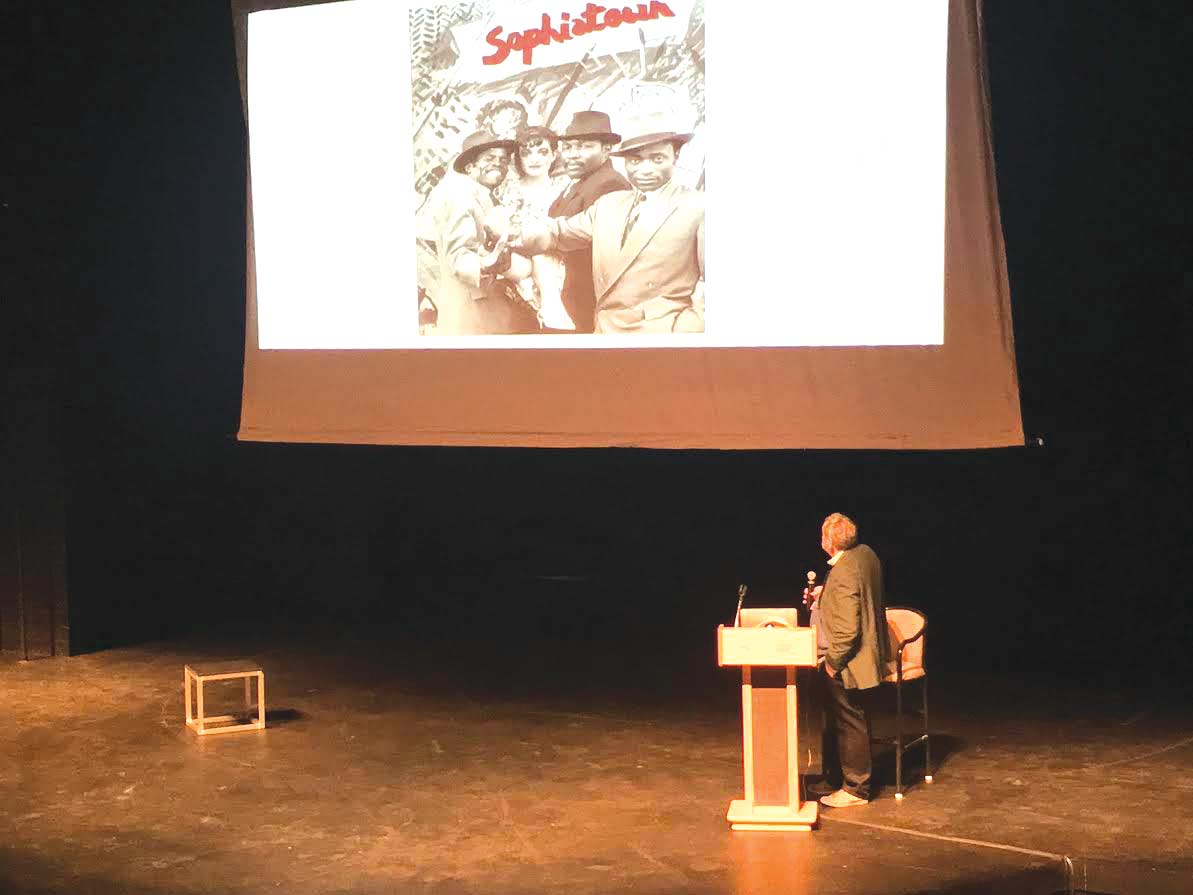
Lecturer’s art is a call for change
By Leah Volpe, Contributing Writer
Featured image by Leah Volpe
Actor, director and playwright Malcolm Purkey shared his experiences in South Africa and the societal uprisings he witnessed, and addressed the role of art in social change during a lecture on Nov. 16.
Purkey weighed the question of whether culture can cause a revolution.
“Very rarely pieces like theatre can cause direct trouble. And often we ask, ‘Well, why are you doing this preaching to the converted?’” said Purkey. “We are not a converter. What we are is the gathering together of community of like-minded people preparing for a different South Africa, thinking through the new ways of thinking.”
Tavia La Follette, assistant professor of theatre, organized the event for students to gain insight into the origins of South Africa’s tumultuous history.
Malcolm Purkey is currently working as the dean of AFDA, the South African School of Motion Picture Medium and Live Performance, after years of lecturing as a professor.
Purkey discussed the extensive past of uprisings in South Africa as the citizens fought for their rights and endured mass shootings and police brutality. He delved into how the arts, specifically theatre, played a role in that history.
The director often found himself inspired by the famous South African playwright Athol Fugard, who produced the provocative piece “Blood Knot,” which plays intensely on race characteristics.
Following in the footsteps of Fugard, Purkey learned not to censor himself when it came to politics and conflicts within the state, and lets his work speak volumes.
Purkey wished that others would learn from Fugard about how artists may be bound by social context and bear witness to the events and emotions around them.
Purkey highlighted how artists can use jokes to relay their messages.
“There’s nothing like jokes to tell you if you’re communicating or not,” he said. “Because if an audience of seemingly non-speakers of English are able to laugh at your jokes, you know they’re engaged. You can fake many things, but you can’t really fake laughter at a joke.”
Just as Purkey found inspiration from Fugard, students at Towson University were able to draw the same inspiration for their work from Purkey’s lecture.
Theatre and women’s studies major Alex Harrington was shocked to hear about the violence and uprisings in South Africa and hopes to see social change through the methods of art and theatre.
“Theatre has been my world since I was little, and then as I got older and started to see the problems in the world, using theatre for change was very important to me,” Harrington said.
Throughout the decades of oppression in South Africa, Purkey felt truly lucky to go to college with like-minded people, where he began a new way of thinking about his own identity.
“I came home [to Britain] and I decided I’m neither African nor European, I’m both,” he said. “So, neither and both is about this complex identity that I have to this day.”
Lashea Johnson, senior acting major at Towson, studied abroad in South Africa with fellow student Sydney Pope this past January and met Purkey, who toured with them around Johannesburg for about a week.
Johnson and Pope recalled the culture shock they felt in this foreign country and saw similarities to the culture and oppression they see back home in America.
“Learning these people’s stories and talking to people that we met at our bed and breakfast and listening to them and just really hearing their struggles and what they go through, and comparing that with what we’re going through here in the U.S. though it’s happening kind of, sort of, at different times, we’re still going through the same thing,” Johnson said.
“In the U.S. we are still stuck in this decade of defiance, but it’s been centuries, like it’s been centuries of defiance with no real payoff,” Pope said. “So, it’s really interesting to see the role art plays in that and how we could better use the tools that we have here.”
Purkey, pursuing his passion for theatre despite fear of the government’s consequences, showed artists’ responsibility to bear witness to the oppression happening in the world around them.
“We would sit down and say, ‘Should we make this play? Well, what are we doing with a theatre in the streets?’” Purkey said. “And we would decide each time we would make it because we loved to make it and we wanted to make it, and history would be the judge of its worth.”

